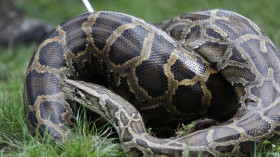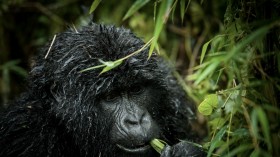Gary Cooper, an amateur angler and aquatic animal enthusiast, recently snagged an exceptionally rare green sawfish off of Queensland's coast. The discovery was made to the absolute surprise of experts, who have not seen the fish in those waters since the 1960s.
"When I actually first hooked into it, I had no idea what I had hooked into,'' Cooper told the local Carins Post, who first reported the story. "This thing pulled me like three miles down the beach, for over two hours."
Thankfully, by the time Cooper was able to tire his catch out and see what it was, he recognized that he had caught a critically endangered species.
The angler spent a great deal of time - how long he can't exactly remember - struggling to carefully remove his hook from the sawfish in shallow waters without harming it. He reported that the olive-hued catch, complete with the characteristically long and toothed snout of a swordfish, was nearly 14 feet long, and was still occasionally thrashing while he worked to free it.
Eventually he succeeded, with only a photo of the beast to show for his efforts.
However, experts couldn't be more thrilled to learn about the catch, especially considering that no one knows how many exactly are left. There are so few green sawfish (Pristis zijsron) that they are only spotted in Australian waters every few decades.
"The lack of data from surveys and fisheries in much of the remainder of its range suggests that the abundance of this species has declined significantly in most, if not all, areas, and is now at only a small fraction of its historic abundance," the IUCN Red List reports. "A population decline of >80 percent is suspected across the global range over the period of the last three generations."
The NOAA, in part, blames the decline of these fish on their own nature, as they boast a slow birth rate and adaptations that haven't changed in what is suspected to be tens-of-millions of years. That, coupled with the fact that juvenile sawfish are threatened by extensive loss of habitat and commercial fishing, is what's making catches like Cooper's increasingly rare.
For more great nature science stories and general news, please visit our sister site, Headlines and Global News (HNGN).
- follow Brian on Twitter @BS_ButNoBS.
© 2024 NatureWorldNews.com All rights reserved. Do not reproduce without permission.





